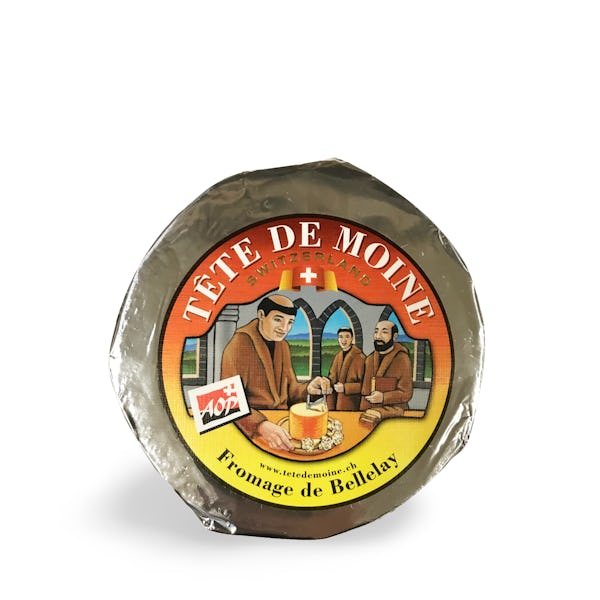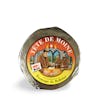Tete De Moine Semi-Hard Cow's Milk Unpasteurized
Tête de Moine AOP, or monk’s head, is an unpasteurized, cylindrical, smeared semi-hard cow’s milk cheese. It has a silky-smooth texture that melts easily. This subtle cheese isn’t usually cut into blocks or wedges, it is scraped into fine rosettes with a girolle cheese curler or a similar instrument. Scraping the cheese increases the amount of surface area that comes into contact with the air, altering the cheese’s structure, and allowing the fragrant, softly melting flavor to fully develop. This tradition dates back to the monks at Bellalay monastery in the Jura town of Bern in the 12th century, who allegedly used it as currency.
One of the stronger Switzerland Cheeses, made from raw cow’s milk, it’s aged for one to two months. A smelly cheese, it has a pungent, sharp, and funky aroma. The yellow paste under the light brown rind is nutty and fruity, hearty and rich, and sweet and salty.
Tête de Moine works well with beef or smoked and cured meats, and pairs well with full-bodied wines and dishes. It complements sweet and tart palate cleansers like apples and pears. Pair Tête De Moine with a full-bodied Burgundy or Cabernet Sauvignon.
Storage Instructions
Cheeses (except brined ones in jars) should be stored in the crisper or the butter drawer of a refrigerator, not on the shelves themselves. This is to help regulate their temperature and humidity levels—and prevents the formation of mold. Once opened, they should not be kept in their original packaging. Soft cheeses with delicate rinds need to breathe, so they are best placed in glass containers lined with paper towels to absorb extra moisture. Leave the lid open a tiny bit for air to circulate and don’t forget to write up a label with the date you first opened the package. Kindly pay attention to the best before date label when you receive your cheese. Consume prior to date indicated.






